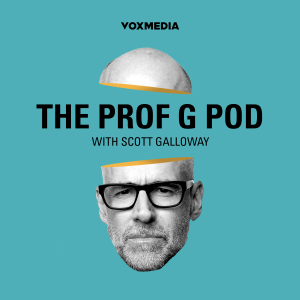

This briefing document summarizes the key themes and principles outlined in the excerpts from "Exceptional Businesses: Shared Wisdom from 25 Years of TAB," a publication celebrating The Alternative Board's (TAB) 25th anniversary. The book distills 25 timeless principles for business success gathered from TAB's extensive experience working with business owners worldwide.
Core Purpose of The Alternative Board (TAB):
TAB is a global business advisory organization dedicated to helping privately-owned business owners achieve growth, increase profitability, and improve their lives. They accomplish this through a combination of local business advisory boards, private coaching, and proprietary strategic services, leveraging peer advice and the expertise of experienced professionals. The book is a compilation of 25 core principles identified through this work over 25 years.
Overarching Themes:
The principles presented in the excerpts revolve around several key themes essential for building and sustaining an exceptional business:
- Differentiation and Value Proposition: Clearly defining what makes a business unique and why customers should choose it over competitors.
- Culture and People: The critical importance of a strong, lived company culture and having the right people in the right roles.
- Strategic Planning and Vision: The necessity of a clear vision and a well-defined strategic plan to guide business decisions and achieve long-term goals.
- Self-Awareness and Personal Growth: Encouraging business owners to understand their strengths and weaknesses, seek external advice, and prioritize their own well-being and lifestyle goals.
- Customer Focus and Loyalty: Understanding customer needs, building strong relationships, and fostering loyalty beyond price or convenience.
- Continuous Improvement and Adaptation: The need for businesses to be flexible, learn continuously, and utilize data and market intelligence to inform decisions.
- Operational Excellence: Implementing documented processes, managing by metrics, and potentially structuring the business for scalability and eventual exit.
Most Important Ideas and Facts (Principle by Principle):
Based on the provided excerpts, the most important ideas and facts from each principle are:
- Principle One: What’s Your Red Rose? Differentiating Your Offering
- Main Idea: Differentiation is crucial in a competitive market, and it starts with a well-defined Unique Selling Proposition (USP).
- Key Fact/Quote: A USP must clearly answer, “Why should I do business with you instead of one of your many direct competitors?” Good customer service is not a unique differentiator.
- Key Fact/Quote: "When you differentiate yourself, people remember you. When they remember you, they spread the word about your business to their network and the world."
- Principle Two: Don’t Just Talk About Company Culture – Live It!
- Main Idea: Every company has a culture, and it's vital for the business leader to define and consistently live the desired culture.
- Key Fact/Quote: "The first step in defining the culture is to define the vision and desired values." This involves articulating how you want customers, employees, and partners to perceive the company.
- Key Fact/Quote: The leader must "personally live the culture you create." If the leader doesn't "walk the walk," no one else will.
- Principle Three: The Moments of Truth: The Importance of the First 90 Days
- (Excerpts focus on later principles, limited information on this one.) The title suggests the importance of the initial period for new employees or customers.
- Principle Four: Getting the Right People in the Right Seats on Your Company Bus (and How It Will Impact Your Business if You Don’t)
- Main Idea: Placing the right individuals in roles that align with their strengths and the company's future needs is critical.
- Key Fact/Quote: Defining the "right seats" requires a "responsibility ownership definition," not just an organisation chart. It should look at future roles needed to achieve goals.
- Principle Five: If You’re the Smartest Person in the Room, Perhaps You’re In the Wrong Room.
- Main Idea: Business owners should recognize their limitations and surround themselves with advisors and team members who are better in areas outside their expertise.
- Key Fact/Quote: "Surround yourself with people who are better than you—particularly in areas that are not your strengths."
- Key Fact: Peer advice and formal boards of advisors can provide unbiased perspectives and improve decision-making.
- Principle Six: Are You the Driver of or a Passenger in Your Business?
- Main Idea: Business owners need a strategic plan to actively drive their business toward their vision, rather than just reacting to past results.
- Key Fact/Quote: A strategic plan is the "business GPS," allowing the owner to "start driving your car using GPS and by looking out of the front windshield" rather than the rearview mirror.
- Key Fact: A simple strategic plan involves defining where you want to end up, when, and the intermediate steps.
- Principle Seven: A Strong Brand Equals Strong Profits
- Main Idea: A strong brand is more than a logo; it's about public perception and the added value consumers attach to a product or service, which directly impacts profitability.
- Key Fact/Quote: Jeff Bezos describes branding as “… what people say about (your business) when you’re not in the room.”
- Key Fact: Strong brands command higher prices and are easier to sell, as exemplified by Apple's profitability despite lower market share.
- Principle Eight: Stop Working Below Your Pay Grade
- Main Idea: Business owners should focus their time on high-value "Platinum Activities" and avoid getting bogged down in tasks that could be delegated.
- Key Fact: Identifying time spent on Platinum Activities and setting a goal to increase this time can lead to significant financial gains.
- Principle Nine: I Don’t Need An Exit Strategy
- Main Idea: Business owners should plan their exit strategy early, as selling a business is often more challenging than anticipated, especially to external buyers.
- Key Fact/Quote: "Aside from a shortage of interested buyers, those who may be attracted to small business ownership probably don’t have any money." Most third-party sales of businesses under $3 million in revenue involve seller financing.
- Key Fact/Quote: "A strong buyer (one with money) wants a business he or she can own, not run." Position the business for sale by reducing day-to-day operational involvement.
- Key Fact: For many owners, their business is deeply personal, and the emotional value is a significant factor in exit decisions.
- Principle Ten: Why Start with Why?
- Main Idea: Connecting with customers and employees on the "Why" – the purpose, cause, or belief behind the business – fosters deeper loyalty and advocacy.
- Key Fact/Quote: Simon Sinek's "Golden Circle" theory highlights that articulating the "Why" resonates with the limbic system, inspiring behavior and decision-making, leading to "Promoters" who are loyal regardless of price, quality, or convenience. "The “Why” is a purpose, cause or belief, and provides a clear answer as to why a company exists and why it should matter to anyone else."
- Key Fact: Sharing your "Why" through stories that connect with potential customers' emotions is more impactful than focusing solely on facts and features.
- Principle Eleven: Know, Respect, and Leverage Your Competition
- Main Idea: Understanding your competitors is essential for developing an effective competitive strategy and can even offer opportunities for growth and collaboration.
- Key Fact/Quote: "If you know the enemy and know yourself, you need not fear the result of a hundred battles." (Sun Tzu)
- Key Fact: Competitors legitimize the market, standardize customer expectations, and can be sources of talent or even acquisition targets.
- Key Fact: A good competitive strategy involves a diagnosis of the challenge, a guiding policy, and coherent actions, similar to effective military strategy.
- Principle Twelve: Add “Chief Evangelist” to Your Job Description
- Main Idea: Business owners and their employees must genuinely believe in and use their own products or services to be credible and understand areas for improvement.
- Key Fact/Quote: "If you don’t believe that your product or service is the best offering on the market – if you wouldn’t actually use it yourself – then the uncomfortable reality is that this is your doing."
- Key Fact: Passion for the product or service is an "X-factor" that can significantly impact success.
- Principle Thirteen: Achieving Business Success through Organisational Alignment
- Main Idea: Ensuring that the business owner, managers, and employees are aligned on the company's vision, goals, and priorities is crucial for reaching maximum potential.
- Key Fact: A lack of alignment can hinder progress and, in extreme cases, be detrimental to the business.
- Principle Fourteen: Business Yoga: Flexibility as a State of Mind and Practice
- Main Idea: In today's changing business environment, flexibility is essential for navigating challenges and making necessary pivots.
- Key Fact/Quote: "A tree that is unbending is easily broken." (Chinese Proverb)
- Key Fact/Quote: Flexibility allows for a "change in strategy without a change in vision," enabling entrepreneurs to adapt and pursue new ways to achieve their goals.
- Key Fact: Practicing "intentional responsiveness," including recognizing the need for change and reframing challenges from different perspectives, is vital.
- Principle Fifteen: Lifelong Learning: The Ticket to Business Success and a More Fulfilled Life
- Main Idea: (Information primarily covered in the title and introduction of the excerpt, not detailed.) Suggests the importance of continuous learning for personal and business growth.
- Principle Sixteen: A Little More Life and a Little Less Work: Achieving a Work-life Balance
- Main Idea: Business owners should intentionally design their businesses to enable their desired lifestyle and not just create another demanding job.
- Key Fact: Owners should embrace their business as a vehicle for achieving their personal lifestyle goals, regardless of how others might perceive it.
- Principle Seventeen: The 90-Day Challenge: Have Your Business Run Without You.
- Main Idea: Business owners should strive to build a business that can operate effectively without their constant day-to-day involvement.
- Key Fact: Making a plan to delegate tasks and empower employees is crucial for achieving this.
- Principle Eighteen: Your Business, Your Passion
- Main Idea: Maintaining passion for the business is important for the owner's well-being and the business's success.
- Key Fact: Owners need to prioritize their own self-care (sleep, diet, exercise) to avoid burnout and maintain their passion.
- Key Fact: Involving family and seeking their input can provide support and contribute to a better work-life balance.
- Principle Nineteen: Run Your Business Like a Franchise
- Main Idea: Structuring the business with documented processes and protocols, similar to a franchise model, can increase value and create an ownership culture among employees.
- Key Fact: Developing an "Internal Franchise" makes the business less dependent on the owner and key employees, making it more valuable to potential investors.
- Key Fact/Quote: An ownership culture compels everyone to think and act like an owner, adhering to the "Law of the Entrepreneur: What’s good for the business is good for the entrepreneur, and what’s good for the entrepreneur is good for the business."
- Principle Twenty: Business by The Numbers: Managing Your Business using Key Performance Indicators
- Main Idea: Using Key Performance Indicators (KPIs) is essential for understanding business performance beyond historical financial statements and gaining insight into the present and future.
- Key Fact: KPIs should be specific, realistic, and tied to what the business is trying to evaluate.
- Key Fact: While sales, profits, and cash are important, they are historical. Effective KPIs provide real-time and predictive insights.
- Principle Twenty-One: Your Hidden Strategic Advantage: Technology as Your Core Competency
- (Excerpts do not provide detailed information on this principle.) The title suggests leveraging technology for strategic advantage.
- Principle Twenty-Two: Why Emotional Decision Making is Killing Your Business and How to Stop It
- (Excerpts do not provide detailed information on this principle.) The title suggests the importance of making data-driven decisions rather than emotional ones.
- Principle Twenty-Three: Achieving Predictable Income Using a Subscription Model in Any Industry
- Main Idea: The subscription model provides predictable income and can be applied across diverse industries beyond traditional media.
- Key Fact: The key to the subscription model is securing customer commitment for a specific length of time, allowing businesses to scale based on committed revenue.
- Principle Twenty-Four: The Strategic Advantage of Market Intelligence
- Main Idea: Deeply understanding market demographics, geography, competitors, distribution channels, and buying patterns provides a significant strategic advantage.
- Key Fact: Understanding the "Why" behind customer purchases is critical for presenting offerings that truly appeal to their needs and interests.
- Key Fact/Quote: "Provided you help them to conceptualise that your product or service satisfies their need, your client will now associate you with solving their problem, achieving their success, and eliminating their pain." Ask questions and listen to truly understand the market.
- Principle Twenty-Five: Growth Strategies Don’t Just Happen by Accident
- Main Idea: Sustainable business growth requires a well-developed strategy, discipline in planning and execution, and the use of metrics (KPIs) to assess progress.
- Key Fact: Growth is based on offering value, not just being cheap.
- Key Fact: Analyzing customer segments and their needs, as well as understanding competitors, is crucial for identifying untapped opportunities.
- Key Fact: Disciplined owners evaluate and make changes to products, customer segments, processes, and staff based on metrics.
Conclusion:
The excerpts from "Exceptional Businesses" highlight that building a truly exceptional business is a multifaceted endeavor. It requires a clear vision, a strong culture, a focus on differentiation and customer value, strategic planning, continuous learning, and the willingness to adapt and seek external advice. By implementing these timeless principles, business owners can strive for sustainable growth, increased profitability, and a more fulfilling life. TAB's 25 years of experience underscore the enduring relevance of these fundamental concepts for privately-owned businesses.
RYT Podcast is a passion product of Tyler Smith, an EOS Implementer (more at IssueSolving.com). All Podcasts are derivative works created by AI from publicly available sources. Copyright 2025 All Rights Reserved.More Episodes
All Episodes>>Create Your Podcast In Minutes
- Full-featured podcast site
- Unlimited storage and bandwidth
- Comprehensive podcast stats
- Distribute to Apple Podcasts, Spotify, and more
- Make money with your podcast











